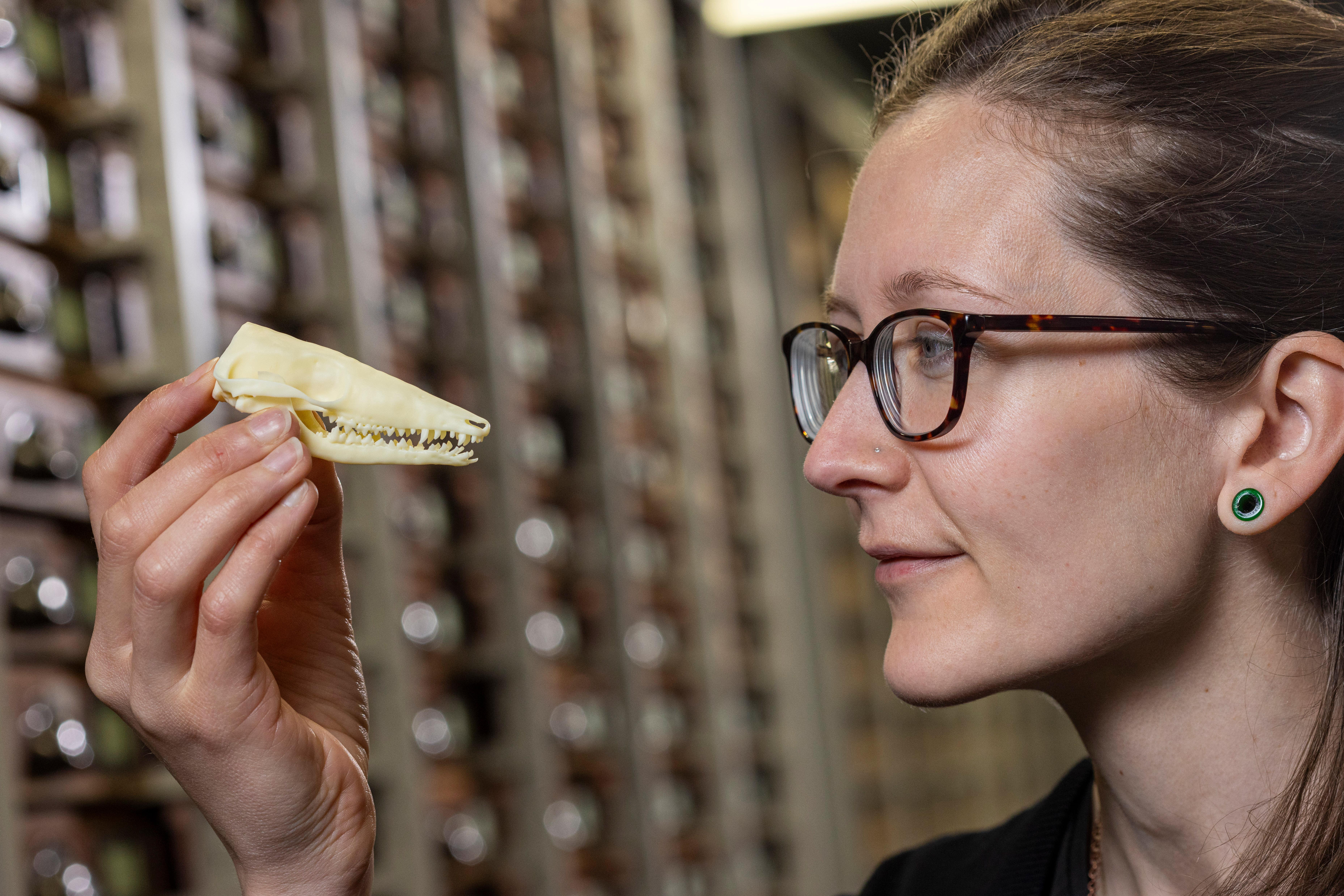Skye fossils show Jurassic mammals lived longer and grew more slowly than today
The study was carried out by an international team led by researchers at National Museums Scotland.

Your support helps us to tell the story
From reproductive rights to climate change to Big Tech, The Independent is on the ground when the story is developing. Whether it's investigating the financials of Elon Musk's pro-Trump PAC or producing our latest documentary, 'The A Word', which shines a light on the American women fighting for reproductive rights, we know how important it is to parse out the facts from the messaging.
At such a critical moment in US history, we need reporters on the ground. Your donation allows us to keep sending journalists to speak to both sides of the story.
The Independent is trusted by Americans across the entire political spectrum. And unlike many other quality news outlets, we choose not to lock Americans out of our reporting and analysis with paywalls. We believe quality journalism should be available to everyone, paid for by those who can afford it.
Your support makes all the difference.Mammals that lived alongside dinosaurs grew more slowly and lived longer than they do today, analysis of fossils found on the Isle of Skye has revealed.
A team led by researchers at National Museums Scotland analysed the fossils of an adult and a juvenile Krusatodon kirtlingtonensis, a mouse-sized mammal that lived about 166 million years ago, which were found on the island.
They used X-ray imaging to count growth rings on the animals’ teeth, and found that the adult was about seven years old and the juvenile was between one and two years old – and still in the process of replacing its baby teeth.
Today small mammals have significantly shorter lifespans, some living as little as 12 months, and they mature quickly, losing their baby teeth and weaning within months of birth.
Skye’s fossils are really putting Scotland firmly on the map when it comes to understanding mammal evolution. This is just the tip of the iceberg in terms of what they can tell us
This indicates, the researchers say in a paper published in the journal Nature, that a fundamental shift in the growth patters and life expectancy of mammals must have taken place during or after the middle Jurassic period (roughly 174 to 161 million years ago).
Dr Elsa Panciroli, lead author and associate researcher of palaeobiology at National Museums Scotland, said: “These fossils are among the most complete mammals from this time period in the world.
“They give us unprecedented insights into the lives of the first mammals in the time of dinosaurs.
“Although on the outside Krusatodon looked like a shrew or mouse, on the inside it was quite different; it grew more slowly and lived much longer than small mammals do today.
“As a result, it probably had quite a different physiology and life history as well.
“Skye’s fossils are really putting Scotland firmly on the map when it comes to understanding mammal evolution. This is just the tip of the iceberg in terms of what they can tell us.”
The juvenile, which was found in 2016, is the only juvenile Jurassic mammal skeleton known to science while the adult, which was found in the 1970s, is one of the most intact mammal skeletons from this time period anywhere in the world.
Dr Stig Walsh, senior curator of vertebrate palaeobiology at National Museums Scotland and co-author on the study, said: “Even in the context of the amazing palaeontological finds on Skye in recent years, these fossils are remarkable.
“Mammal fossils of this age are exceptionally rare worldwide, and most are just single teeth found by sieving sediment.
“To find two such rare fossil skeletons of the same species at different growth stages has rewritten our understanding of the lives of the very earliest mammals.
“We’re thrilled they are both now part of Scotland’s National Collection, an important part of the global fossil record, and will be preserved for generations of researchers to come.”